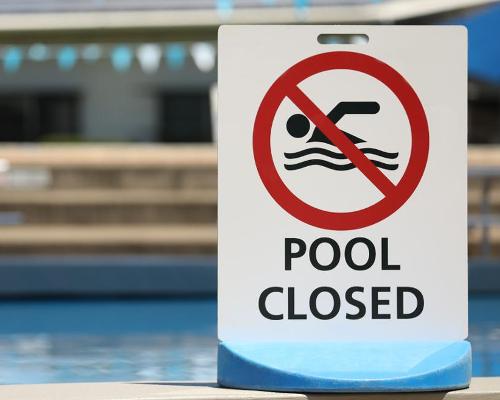24 Nov 2022
UK fitness industry fights for continuation of government energy support from April 2023
BY Frances Marcellin

A number of UK local authorities and their leisure management partners are in crisis due to rising energy costs, with 40 per cent saying leisure centres and swimming pools will be closed or services reduced before the end of March 2023 unless they receive support from the government.
The numbers come from a survey carried out by UK Active, to determine the vulnerability of the public sector.
The study also found a further 34 per cent of facilities surveyed will be at risk before 31st March 2024, meaning a total of 74 per cent of local authority facilities in the survey are classified as being at risk over the next 18 months.
At the other end of the scale, 26 per cent reported being financially secure, with no risk of closure or reduced services expected up to 31st March 2024,
The responses already take into account support given by the government through its Energy Bill Relief Scheme (EBRS), which will run until 31 March 2023.
Swim England has also said that more than 100 swimming pools will be lost around the country, with swimming pools a major focus of the crisis, given their energy demands.
UK Active has led a response to the government’s Autumn Statement from a coalition of representative bodies in the sport, recreation and physical activity sectors, including Active Partnerships; CIMSPA; Sport for Development Coalition; Sport and Recreation Alliance; and the Youth Sport Trust.
The Statement set out the financial challenges for businesses but did not comment on any sectors that are disproportionately affected by rising energy costs, such as leisure centres and swimming pools are vulnerable, with some operators being forced to close their doors.
Freedom Leisure, a not-for-profit leisure and cultural trust, says bills for three of its sites alone have soared by more than £1m annually since 2019. Even under the EBRS, one of Freedom Leisure’s swimming pools has seen costs rise from £180,000 to £600,000 a year. The trust has already been forced to close sites in Milton Keynes and Rye and warns more closures are inevitable unless additional support is given.
“We're now seeing daily announcements of public sector leisure facilities either restricting services, at threat of closure, or closing permanently due to the energy crisis,” said Huw Edwards, CEO of UK Active. “The government needs to intervene now.
"We remain committed to bringing together our operator members and representatives from across local government, to explore all options available to stem the flow of closures," he said.
While the government has pledged to review the EBRS to ensure “support is targeted at those most in need” by the end of 2022, it is feared that any additional relief – should it be granted – will not start until April 2023, which will be too late for many leisure centre operators.
“While not pre-judging the outcome of the EBRS review, we don't believe the measures announced will be sufficient or come on-stream fast enough to tackle the challenges the sector faces,” says the joint statement “Grassroots clubs, community organisations and schools are having to absorb rising costs by reducing provision and increasing fees and facilities are being rationalised and closed across the country, impacting on jobs and livelihoods and removing essential pillars which support the physical, mental and social wellbeing of communities.”
Furthermore, the coalition suggests short-term support for all health and fitness and leisure operators, not only the public sector, should include an extended energy price guarantee, VAT relief, business rates holiday and local government grants. The DCMS supported the sector during the pandemic with £100m of subsidies, which, if issued again, could provide temporary relief to avert a crisis of closures.
Britons’ participation in weekly swimming alone saves the NHS more than £357m a year, according to Swim England, while evidence from Sheffield Hallam University and Sport England shows that physical activity and sport contribute an estimated £72bn in social value and are worth £13bn to the economy annually, providing 585,000 jobs, including 300,000 in health clubs and leisure centres.
“Pools and leisure centres help reduce pressure on the NHS and social care system, saving more than £350m a year,” said Jane Nickerson, chief executive of Swim England. “However, they're particularly vulnerable to the rising energy prices as we are seeing now, with increased closures and service reductions.
“Our fear is that more than 100 pools are under threat in the next six months. That would be a devastating blow for the millions who rely on being active in the water for their physical and mental health and lifesaving skills. Without additional support, the situation will only deteriorate further, which would be an absolute tragedy.”
The damage to public health is being exacerbated by the cost-of-living crisis. In a consumer poll with Savanta ComRes, UK Active found that 43 per cent of respondents said the rising cost of living will have a ‘negative impact’ on their ability to participate in sport and exercise, and 20 per cent say it will have a ‘large negative impact’ and significantly reduce their physical activity.
“Councils are working incredibly hard to prevent community facilities from closing, and understand that many people are facing rising individual costs, so have no desire to increase prices or adjust opening hours if it can be avoided,” said Councillor Gerald Vernon-Jackson, chair of the Local Government Association’s Culture, Tourism and Sport Board. “Rising energy costs pose a very real and significant issue for the sector. Without sufficient support, councils will be forced to make difficult decisions about whether new facilities open and whether existing centres are forced to close.”
Close Window